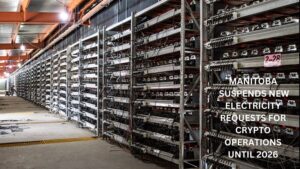Key Takeaways
- The Argentine Republic’s Central Bank (BCRA) has prohibited financial institutions from providing unregulated digital asset services.
- The measure practically amounts to a blanket prohibition on crypto transactions within the formal economy because no crypto assets are regulated in the country.
- Argentina reached a $45 billion debt restructuring agreement with the International Monetary Fund a month ago to help the country avoid defaulting on its loans.
- To avoid money laundering, cyber attacks, and cross-border terrorism, the Central Bank has pledged to discourage the incorporation of digital assets in the financial system.
Due to Argentina’s central bank’s prohibition on crypto, financial institutions in the South American country have been prohibited from giving consumers any operations involving unregulated digital assets beginning Thursday.
The monetary authority has outlawed opportunities that involve bank clients to acquire Bitcoin and other digital currencies, just days after two prominent institutions announced they would.
On Monday, two of Argentina’s largest banks, Banco Galicia, a private bank, and Brubank, a digital bank, announced the availability of crypto trading possibilities for its customers to purchase cryptocurrencies through their portals. Users could buy Bitcoin (BTC), Ether (ETH), Ripple (XRP), and the stablecoin USD coin via this service (USDC). Crypto adopters in Argentina were only able to take advantage of this benefit for four days before the Central Bank intervened.
Aside from that, investments whose returns are dictated by the peaks and troughs of cryptocurrencies are prohibited.
The move comes about a month after the IMF granted a $45 billion loan facility that included a requirement that the country discourage the usage of cryptocurrency.
Argentina’s inflation is skyrocketing at an accelerated pace. Inflation hit an all-time high of 55.1 percent, according to INDEC, the country’s official statistical agency. Argentines have embraced cryptocurrency rather than relying on their fiat currency due to the never-ending conflict.
This measure practically equates to a general prohibition on crypto transactions within the formal economy, because no crypto assets are regulated in the country.
The Central Bank of Argentina (BCRA), which has long been anti-crypto, forbade banks and other financial institutions from offering their customers any type of digital asset transaction on Thursday. As a result, the recently added operations of Banco Galicia and Brubank have been suspended.
“The activity of financial entities must be aimed at financing investment, production, marketing, consumption of goods and services required by both domestic demand and export.”
The outrage of centralised authorities’ move totally contradicts many Argentinians’ actions, given that the country is apparently ranked tenth in the world for cryptocurrency usage.
As the value of their assets is destroyed by frequent currency crises and annual inflation of more than 50%, Argentines are quickly embracing cryptocurrencies.
“Bruno Aires+,” a 12-point strategy to incorporate crypto and blockchain into the state:
Horacio Rodrguez Larreta, the Mayor of Buenos Aires, announced “Bruno Aires+,” a 12-point strategy to integrate crypto and blockchain into the state. Citizens of the Capital will be able to pay their taxes using their crypto wallets under this proposal. Cryptocurrencies will be converted and transferred as peso into the State’s accounts with the help of crypto businesses or exchanges. For its citizens, it intends to develop a blockchain-based digital identity (DID) network. The Central Bank’s recent actions directly contravene the 12-step plan’s goal.
Diego Fernández, the city’s secretary of innovation and digital transformation, told that the service would be available in the “coming months,” and that local crypto exchanges SatoshiTango, Buenbit, Ripio, and Belo, as well as Mexico-based Bitso, would be involved.
The declaration came only weeks after Rio de Janeiro, Brazil, revealed that starting in 2023, a municipal real estate tax might be paid with cryptocurrency.
Last year, the BCRA issued an advisory on the usage of cryptocurrencies and the risks it identified associated with them, including excessive volatility, money laundering, terrorism financing, and probable non-compliance with foreign exchange regulations.











